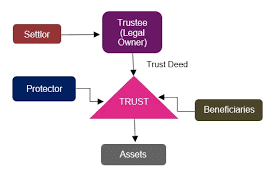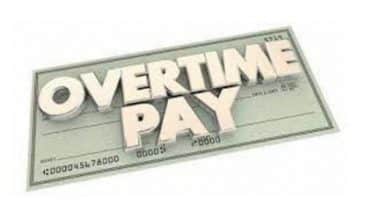Consider taking a sales position at a company without knowing how much you’ll be paid. When it comes to attracting and retaining sales talent, sales compensation is critical. That is why getting your organization’s sales compensation right is critical to its success—you want to give the best talent a reason to join your sales team and stay with your company long-term. This guide will cover the significance of a sales compensation plan, the different types and examples of sales compensation plans, and the steps you can take to create the best compensation plans for sales reps, executives, and sales managers. Let’s get this party started.
What is Sales Compensation Plans?
A sales compensation plan is a well-structured program that determines how much sales reps, executives, and sales managers are paid based on their performance. It contains information on all aspects of a salesperson’s earnings, such as base salary, commission, bonuses, and benefits.
The best compensation plans for sales reps, executives, and sales managers are designed to encourage positive behaviors across your team, set expectations and compensation standards for all salespeople, and drive results to achieve overall team and organizational goals. Developing a sales compensation plan has additional advantages.
Why is Sales Compensation Plans is Important?
Incorporating incentives into your sales compensation plan adds a whole new level of value to your organization. Sales compensation enables you to achieve predetermined results and reassure behaviors in a manner designed for a specific role in the organization. It motivates every member of your sales team, from junior sales representatives to senior executives.
The same strategy, however, does not work for all levels of members. As a result, sales compensation plans must be tailored in such a way that they successfully impact people in various sales roles.
What is the Need for Sales Compensation?
Leading sales organizations use sales compensation to motivate their sales. Sales compensation is frequently used as a sales performance management tool to achieve predetermined sales targets. Sales compensation plans can improve the behavior and performance of sales reps, sales managers, and sales executives beyond their peak levels. Companies can encourage their employees to exhibit consistent behavior not just once, but monthly, quarterly, and annually in this manner.
Sales compensation can help your company establish itself in its early years while also allowing it to adapt to changing market conditions. As a result, sales compensation ensures that the desired sales targets are met.
What are the Components of Sales Compensation Plans?
A sales compensation plan’s components are critical for defining how and what you intend to evaluate each sales role. There are big data tools on the market that allow you to standardize the elements of your plans against the best compensation practices for sales reps, sales managers, and sales executives, allowing you to compete with your competitors. These elements should be simple to understand, objective, and limited to a specific number based on the comparative analysis.
This allows your sales representatives to prioritize which goals should be prioritized, which benefits both revenue generation and your business. Specific elements must be highlighted based on their importance, such as:
- Concerned with an individual representative who can influence results.
- By job roles and responsibilities.
- Targeted on a specific outcome
- It is simple to track and forecast.
Compensation Plans for Sales Managers
If sales are like sports, your sales manager is the passionate and insightful coach who leads your top performers to victory every day. Your sales manager compensation plans must incentivize them to sell and meet their quotas while also providing them with a solid foundation to make the right managers for the long-term success of the team and the business.
We’ve got your back. In this blog, we’ll go over five key strategies for developing compelling, competitive, and aligned compensation plans for sales reps, sales managers, and sales executives.
Tips for Creating a More Effective Sales Compensation Plan
Developing the best compensation plans for sales reps, sales managers, and sales executives is your golden opportunity to align day-to-day tactical behavior with the key objectives of your business. However, finding the right balance can be difficult. Pay too little, and you won’t be able to attract and retain top talent, which is essential for maximizing sales performance.
If you pay too much, you will have difficulty scaling your team and achieving effective growth. These five strategies will make the process easier, whether you’re creating your first plan or refreshing and refining an existing one.
#1. Maintain simplicity
There is a tendency to overengineer sales compensation plans. Base salary, sales commission rates, ramp-ups, accelerators, decelerators, sales performance incentive funds (SPIFs), and time-based bonuses are frequently seen dancing around on the same spreadsheet.
It may appear that you are providing more opportunities for your managers to earn a higher salary, but having too many responsibilities can cause a conflict of attention. Your business priorities will be unclear to them, and they will be unsure where to spend their time, resulting in misalignment.
#2. Make use of historical data
Nothing derails a compensation strategy like unrealistic goals or metrics that are difficult or impossible to measure. Draw on your company’s historical data and reflect on past sales performance to inform your goal-setting wherever possible.
This step not only saves time when creating a compensation plan but also increases the likelihood that your team will meet or exceed their sales quotas. Take, for example, insights from commonly tracked sales metrics such as:
- The percentage of revenue generated by new customers versus existing customers.
- A customer’s average lifetime value (LTV).
- Contract value on average (ACV)
- Won deals vs. lost deals
- Selling cost versus revenue earned
- Year-over-year growth
- Market penetration
- Net promoter score (NPS)
- Consider a higher starting salary.
Sales managers do it all: prospecting, selling, coaching, strategizing, and analyzing. Your sales managers require time to actively oversee and nurture the company’s sales force, whether they have three direct reports or 25. A base-heavy compensation package could be exactly what they need to help them—and their sales team—perform at their best. They have the time and energy to jump in and do one-on-one training, develop sales enablement resources, and more when they aren’t focused on meeting quota.
#3. Design a structured bonus
Another effective strategy is to use bonus and commission structures to illuminate the path to success. Sales bonus plans are distinct milestones that motivate employees and draw a clear line between business objectives and sales targets. Here are a few examples of structured bonuses you can use:
- Pay a higher commission rate for valuable deals with direct commission plans.
- Structures of team bonuses: Set a group sales goal and reward employees with a percentage or fixed bonus.
- Flat-rate bonuses: For each milestone, pay a fixed bonus, such as $200 for each $1,000 new account.
Bigger doesn’t always mean better. Other levers, such as ongoing commission rates or perks like team trips and gifts, can always be used to stimulate growth and foster retention.
#4. Fine-tune and improve
Our final piece of advice is to revisit and fine-tune your strategy regularly. Compensation plans for sales reps, sales managers, and sales executives should never be “set it and forget it.” The COVID-19 pandemic was a dramatic example of market change, requiring in-person sales teams to learn omnichannel commerce overnight.
Examples of Sales Compensation Plans for Salespeople
There are numerous ways to structure compensation plans for sales reps, sales managers, and sales executives, but the best one for you will depend on your sales strategy and team. Some of the most common types of salespeople compensation plans examples are provided below.
#1. Salary
With this compensation model, salespeople get their pay the same way as the rest of the team: with an annual salary. Instead of paying reps a commission for meeting certain goals, their metrics are presented as a set of standard pay expectations. Sales managers can also offer a bonus to encourage reps to exceed their targets.
The salary model is uncommon in sales because leaders question the ability of reps to be motivated without commission. Nonetheless, Dorsey contends that it is an effective strategy for security-driven sales reps, and it can be used to hold your team to a higher standard.
#2. Commission only
The commission model gives sales representatives complete control over their earnings. A rep’s salary is only limited by how much they can sell in a given month because there is no base salary or cap. The model can be effective for money-motivated reps, but it can put a lot of pressure on reps to close a certain number of deals each month. Without proper support, you risk reps rushing deals to close to earn a commission.
#3. Base salary plus commission.
This is one of the more common sales compensation strategies today. Reps in this model are paid a base salary that is supplemented by commission earnings. Compensation plans will usually include an on-target earnings figure that represents their total income if they meet their quota.
#4. Tiered commission
Sales reps are paid a percentage of the money for each deal they close, similar to the commission model. The tiered model differs in that reps are paid an escalating commission rate as they close deals that meet certain benchmarks. So a sales rep might earn a 5% commission on the first $50,000 in revenue, then 7% on deals until they reach their quota, and finally 9% on deals that exceed their quota.
#5. Gross margin
The gross margin compensation structure pays reps a commission based on the deal’s profit margin. As a result, the higher the company’s profit on a sale, the more money a representative will earn. The strategy aims to incentivize reps to sell larger deals while discouraging discounts that reduce a company’s revenue from a deal.
#6. Territory volume
A territory volume compensation plan may be best for your team if you have a sales team that sells to businesses on the West Coast, another for accounts in the Midwest, and a third for accounts on the East Coast. In this strategy, each regional team receives a commission based on the total revenue generated in their territory, which is then divided equally among all reps. This model works best if each territory has well-defined and balanced sales opportunities.
What are 3 sales compensation methods?
Salary, commission, and combination (salary plus incentive) plans are the three basic compensation plans available to sales management.
How do I create a sales compensation plan?
Create a sales compensation plan for new reps by following these steps:
- Understand the fundamentals of a good sales compensation plan.
- Establish role levels.
- Determine total on-target earnings (OTE)
- Set a base salary and a sales commission structure.
- Set goals.
- Plan for onboarding and training compensation.
What is the best sales compensation plan?
A tiered commission structure is one of the best ways to keep top performers selling. It encourages sales reps to exceed their quotas. When sales representative reaches a certain number of deals or revenue, they are promoted to a higher commission rate. The more transactions they close, the more money they will make.
What is the sales compensation plan for sales?
A sales compensation plan is a well-structured program that determines how much a sales representative is paid based on their performance. It contains information on all aspects of a salesperson’s earnings, such as base salary, commission, bonuses, and benefits.
What is a 70/30 compensation plan?
A 70/30 pay split allocates 70% of the total target compensation to base salary and 30% to target incentive. Pay ratios range from 50/50 to 85/15. For “high influence” sales jobs, use a more aggressive pay mix, and for “low influence” sales jobs, use a less aggressive pay mix.
What are good sales incentives?
Effective sales incentives include:
- Travel vouchers
- Show or sporting event tickets.
- Trip as a group or a night out
- Fine-dining experience.
- Tech goodies.
- Office alterations or additions
- A gym or fitness studio membership.
- Online learning courses
In Conclusion
Many components and factors must be considered when designing the best compensation plans for sales reps, sales managers, and sales executives. Money is indeed required first, but most importantly, continuous development and retention processes for salespeople must be implemented.
Compensation Plans for Sales FAQs
What is a good commission structure?
The industry average for sales commission is typically 20% to 30% of gross margins. Sales professionals can earn as little as 5% of a sale, while straight commission structures allow for a 100% commission.
What is a fair commission rate for sales?
Sales commission rates range from 5% to 50%, but most businesses pay between 20% and 30%. Start by estimating how much it would cost to hire people under different sales commission structures—both full-time employees and independent contractors—to find the right fit that aligns with your sales goals.
What is a sales incentive plan?
A sales incentive plan is a strategy for motivating and rewarding salespeople who meet or exceed their sales targets. It is used in addition to a traditional compensation plan. Personal sales performance incentive funds (SPIFs) or non-monetary rewards can be used as sales incentives.
What is normal commission?
The term “normal commission” refers to the amount of commission that a member would normally charge to that customer or a similarly situated customer in the ordinary course of business in transactions of similar size and characteristics but not involving security taken in trade.






